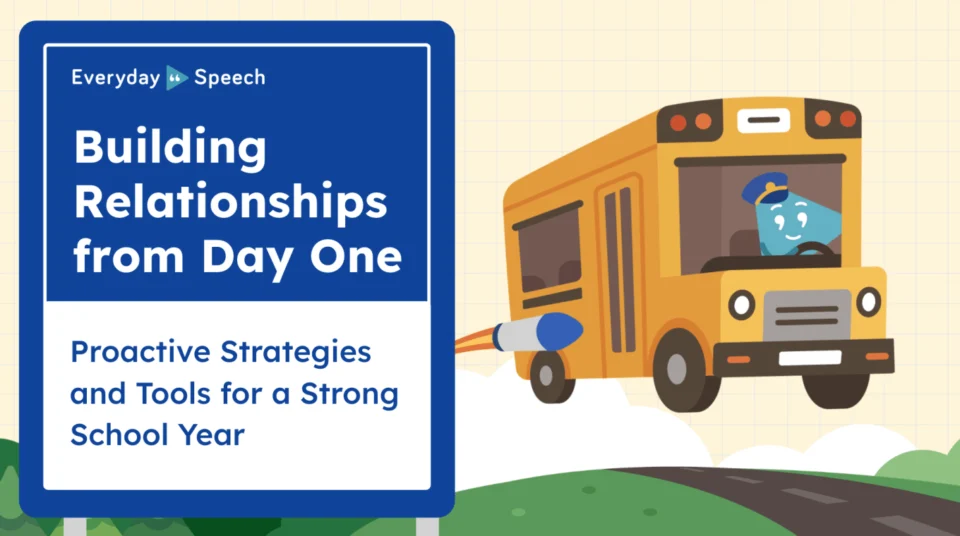Effective IEP Goals to Improve Attention Skills: Expert Advice
Get free social skills materials
No-prep lessons on self-regulation, emotional recognition, conversation skills, and more.
Sign up hereDownload 50+ Example IEP Goals
Customizable library of strengths-based goals
Attention skills play a crucial role in academic and social settings. Students with attention difficulties often struggle to stay focused, follow instructions, and complete tasks. These challenges can significantly impact their learning and daily functioning. That’s why it is essential to develop Individualized Education Program (IEP) goals that specifically target attention skills.
Understanding Attention Skills
Before we dive into effective IEP goals, let’s first understand what attention skills are. Attention skills refer to the ability to focus and sustain concentration on a task or stimulus. There are different types of attention, including sustained attention (maintaining focus over an extended period), selective attention (focusing on specific stimuli while ignoring distractions), divided attention (attending to multiple tasks simultaneously), and alternating attention (shifting focus between different tasks or stimuli).
Students with attention difficulties may struggle with one or more of these attention types, making it challenging for them to stay engaged and perform well in various situations.
Setting SMART IEP Goals
When developing IEP goals to improve attention skills, it is crucial to ensure they are SMART goals – Specific, Measurable, Achievable, Relevant, and Time-bound. SMART goals provide clarity and focus, making it easier to track progress and make necessary adjustments along the way.
Aligning IEP goals with the student’s needs and abilities is also essential. Each student is unique, and their attention difficulties may manifest differently. By tailoring the goals to their specific challenges, strengths, and interests, we can create a more effective and meaningful intervention plan.
Here are some tips for writing effective IEP goals to increase attention skills:
- Be specific: Clearly define the target skill or behavior you want to improve.
- Use measurable criteria: Identify how progress will be measured and tracked.
- Make it achievable: Set realistic goals that the student can reasonably accomplish.
- Ensure relevance: Connect the goals to the student’s academic and social needs.
- Set a timeframe: Establish a timeline for achieving the goals.
Sample IEP Goals to Improve Attention Skills
Now, let’s explore some sample IEP goals that can help improve attention skills:
Goal 1: Enhancing Sustained Attention
Description: The student will be able to sustain attention on a given task or activity for a specified duration (e.g., 10 minutes) without significant distractions or interruptions.
Strategies to achieve the goal:
- Provide visual cues or prompts to remind the student to stay focused.
- Use timers or countdowns to create a sense of urgency and time awareness.
Measurable outcomes:
- The student will be able to sustain attention for the specified duration in 80% of the sessions.
- The student will demonstrate improved task completion and accuracy.
Goal 2: Developing Selective Attention
Description: The student will be able to selectively attend to relevant stimuli while ignoring distractions or irrelevant information.
Strategies to achieve the goal:
- Minimize environmental distractions by creating a quiet and organized workspace.
- Practice focus exercises that involve identifying and responding to specific stimuli.
Measurable outcomes:
- The student will demonstrate improved ability to filter out distractions and maintain focus on the target stimuli.
- The student will show increased accuracy and efficiency in completing tasks.
Goal 3: Strengthening Divided Attention
Description: The student will be able to attend to multiple tasks or stimuli simultaneously, allocating attention appropriately.
Strategies to achieve the goal:
- Engage in multitasking activities that require switching between different tasks.
- Break complex tasks into smaller, manageable steps to facilitate attention allocation.
Measurable outcomes:
- The student will demonstrate improved ability to divide attention between multiple tasks without significant errors or omissions.
- The student will show increased efficiency in completing multitasking activities.
Goal 4: Improving Alternating Attention
Description: The student will be able to shift focus between different tasks or stimuli efficiently and effectively.
Strategies to achieve the goal:
- Engage in activities that require switching between tasks or stimuli.
- Practice task-switching exercises to improve flexibility and adaptability.
Measurable outcomes:
- The student will demonstrate improved ability to alternate attention between tasks or stimuli without significant delays or errors.
- The student will show increased speed and accuracy in task-switching activities.
Collaboration and Monitoring
Developing effective IEP goals requires collaboration between the student, parents, teachers, and therapists. Each stakeholder brings valuable insights and perspectives that can contribute to the success of the intervention plan.
Regular monitoring and assessment of progress towards the IEP goals are essential. By tracking the student’s performance and collecting data, we can evaluate the effectiveness of the strategies and make any necessary adjustments or modifications to ensure continued progress.
Conclusion
Effective IEP goals that target attention skills can make a significant difference in a student’s academic and social success. By setting SMART goals, aligning them with the student’s needs, and implementing appropriate strategies, we can help students improve their attention skills and overcome challenges in various settings.
If you are in the discovery stage of seeking solutions for attention difficulties, I encourage you to seek professional guidance. A Speech Language Pathologist or an expert in Social Emotional Learning can provide personalized support and guidance tailored to your specific needs.
For more resources and information on improving attention skills and other social-emotional learning topics, feel free to explore our blog. Start your EverydaySpeech Free trial today and embark on a journey towards enhancing attention skills and overall social-emotional well-being.


